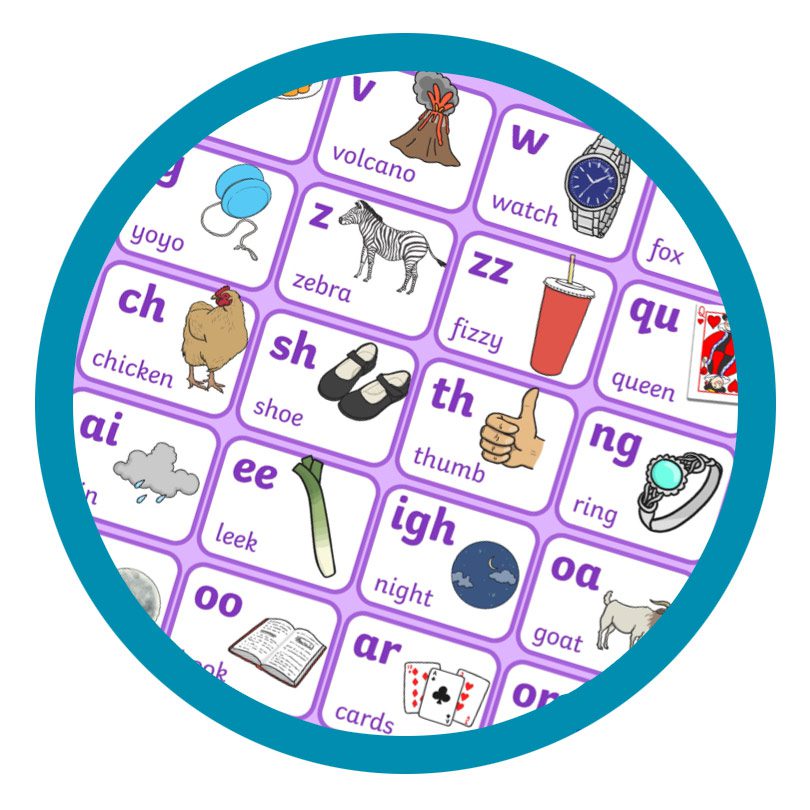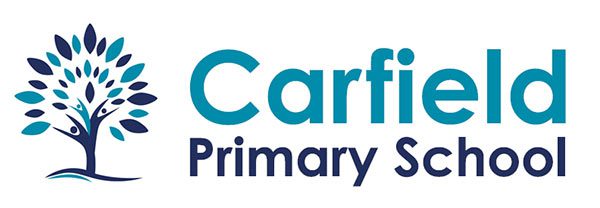Phonics
Our Vision…
At Carfield Primary School, our pupils learn to read and write effectively and quickly using the Read Write Inc. Phonics programme – a validated Department for Education phonics programme. Children then progress onto comprehension lessons once they can read with accuracy and speed.
The RWI programme is for:
- Pupils in Reception to Year 2 who are learning to read and write
- Any pupils in Years 2, 3 and 4 who need to catch up rapidly
- Struggling readers in Years 5 and 6 follow Read Write Inc. Fresh Start
- Nursey begin the programme at their level from the Summer Term
Phonics at EYFS and KS1
All pupils who begin school in Foundation Stage will being learning to read through the RWI phonics programme. Pupils will initially take part in whole class phonics sessions, and then they will be split into groups and take part in 45 minute phonics sessions with a trained teacher or TA. This happens daily. The same length sessions take place in Year 1 (and where necessary Year 2). Pupils have their phonics skills (segmenting and blending) formally assessed at the end of Year 1 through the national statutory Phonics Screening Check (PSC). These results are published nationally.
By the end of Key Stage 1, we aim for our pupils to be able to read aloud age-appropriate texts accurately and with sufficient speed for comprehension. This means that we can focus on developing their comprehension, preparing them well for transition to Key Stage 2. Having good decoding skills means that they have a sound strategy for decoding unfamiliar words when they come across them at whatever stage or in any subject, even into secondary school.
In Read Write Inc. Phonics, pupils:
- Decode letter-sound correspondences quickly and effortlessly, using their phonic knowledge and skills
- Read common exception words on sight
- Understand what they read
- Read aloud with fluency and expression
- Write confidently, with a strong focus on vocabulary and grammar
- Spell quickly and easily by segmenting the sounds in words
- Acquire good handwriting
The Read Write Inc. programme has detailed and structured lesson plans. These give the teachers practical day-to-day guidance. All groups are taught using the same behaviour signals and structure. This ensures that the children clearly know what is expected and what comes next regardless of the group that they are in. In addition, we teach pupils to work effectively with a partner to explain and consolidate what they are learning. This provides the teacher with opportunities to assess learning and to pick up on difficulties, such as pupils’ poor articulation, or problems with blending or alphabetic code knowledge.
Assessment and Phonics Groups
We group pupils according to their progress in reading rather than their writing. This is because it is known that pupils’ progress in writing will not be parallel to progress in reading, especially for those whose motor skills are less well developed.
In Reception, we begin the school year by emphasising the alphabetic code (Set 1). The pupils rapidly learn sounds and the letter or groups of letters they need to represent them. Simple mnemonics help them to grasp this quickly.
Every 6-8 weeks, we assess all pupils following Read Write Inc. Phonics using RWI assessments. We use this data to assign them to either Read Write Inc. Phonics groups. This gives us a very good indication of how well they are making progress relative to their starting points. We also do this for all pupils, whenever they join us, so we can track all of them effectively, including those eligible for the pupil premium. This data also allows us to intervene in different ways. For instance, we quickly move pupils to another group if they are progressing faster than their peers. Children who don’t make as much progress have one-to-one tutoring so that they keep up.
Additional Read Write Inc catch up is for:
- Pupils in Year 2 to Year 6 who have completed Read Write Inc. Phonics but require additional booster sessions
Phonics Books
We make sure that pupils read books that are closely matched to their increasing knowledge of phonics and the common exception words. This is so that, early on, they experience success and gain confidence that they are readers. Re-reading and discussing these books with the teacher supports their increasingly fluent decoding.

